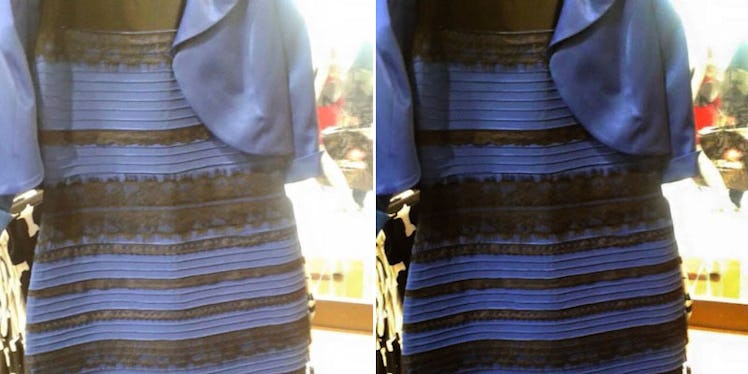Yesterday, the Internet sparked a debate about what color a dress is.
It turns out that it was an optical illusion, which is a biological effect of the human eye.
However, what I learned about this whole thing delves deeper into the realms of social science.
I think how people reacted to "the dress" can offer valuable lessons that we can apply to our relationships with others.
We see things differently, not only in color, but in perception, too.
Most of us keep quiet when someone has an opposing view for sake of being civil and respectful, but it doesn’t mean we’re not biting our tongues.
The dress has served as a kind of loophole to exposing our true natures; we don’t agree with each other, sometimes even on the most basic level (like colors). That’s a given, right?
The real question is: What do we do when we don’t agree? And more importantly, how do we come to a peaceful agreement?
1. Respect perspective
The human brain is awesome at connecting the dots. Sometime we connect the dots in a way that makes sense for others, and sometimes we don’t.
As people debated about whether the infamous dress was white and gold or black and blue, it seemed like no one really stopped to think why anyone saw the colors differently than they did, let alone do much research.
At the very least, people would just conclude with “f*ck, that's weird.”
We often fail to take the time to try to understand and instead, assume and draw a conclusions, like, “All these people are just color blind.”
In relationships, a man might think to himself, "Why is she acting that way?” and go on to conclude in his own mind, "She’s just being emotional, she must be on her period.”
Sure, we won't always analyze every little situation or mood swing, but should we? If you find yourself in a relationship where you're both struggling to understand each other, it's probably best if you put forth more effort to figuring out the root causes of the disparate feelings.
We should know by now that assuming or shrugging it off only adds more fuel to the fire. This can be as simple as courteously asking, "What's wrong?" Doing so could change everything and clear the air.
2. Be reasonable
People are well aware that others see different colors than they do, but still they swear that their eyes see the “real” truth.
If you’re not reasonable, you’ll hold on to your truth forever.
You also won't have very many friends. No one likes a person who claims absolute truths without allowing for any room to question or the possibility to be wrong.
A reasonable person would acknowledge that there are people who see things differently.
These people are open to learning about new perspectives and point of views because it may enlighten or challenge them, which they see as positive.
3. If you don’t know something, admit it
In relationships, we want our significant others to count on us.
Sometimes, we want this so badly that we lie a bit to make it seem as though we have all the answers. Though well-intended, if the goal is to build trust, then this method is not the best.
Put your pride away and admit when you don’t know something. Make yourself vulnerable at some point.
Vulnerability lets the other person know that you're all in, that there's no plan B and there's just the two of you.
When you admit that you are wrong about something, you gain respect from your significant other as well as trust. You grow closer and the integrity of the relationship will grow stronger.
This will give you both the opportunity to feel like a team, and rather than working against each other, you work together.
Correcting yourself will ultimately benefit the both of you.
